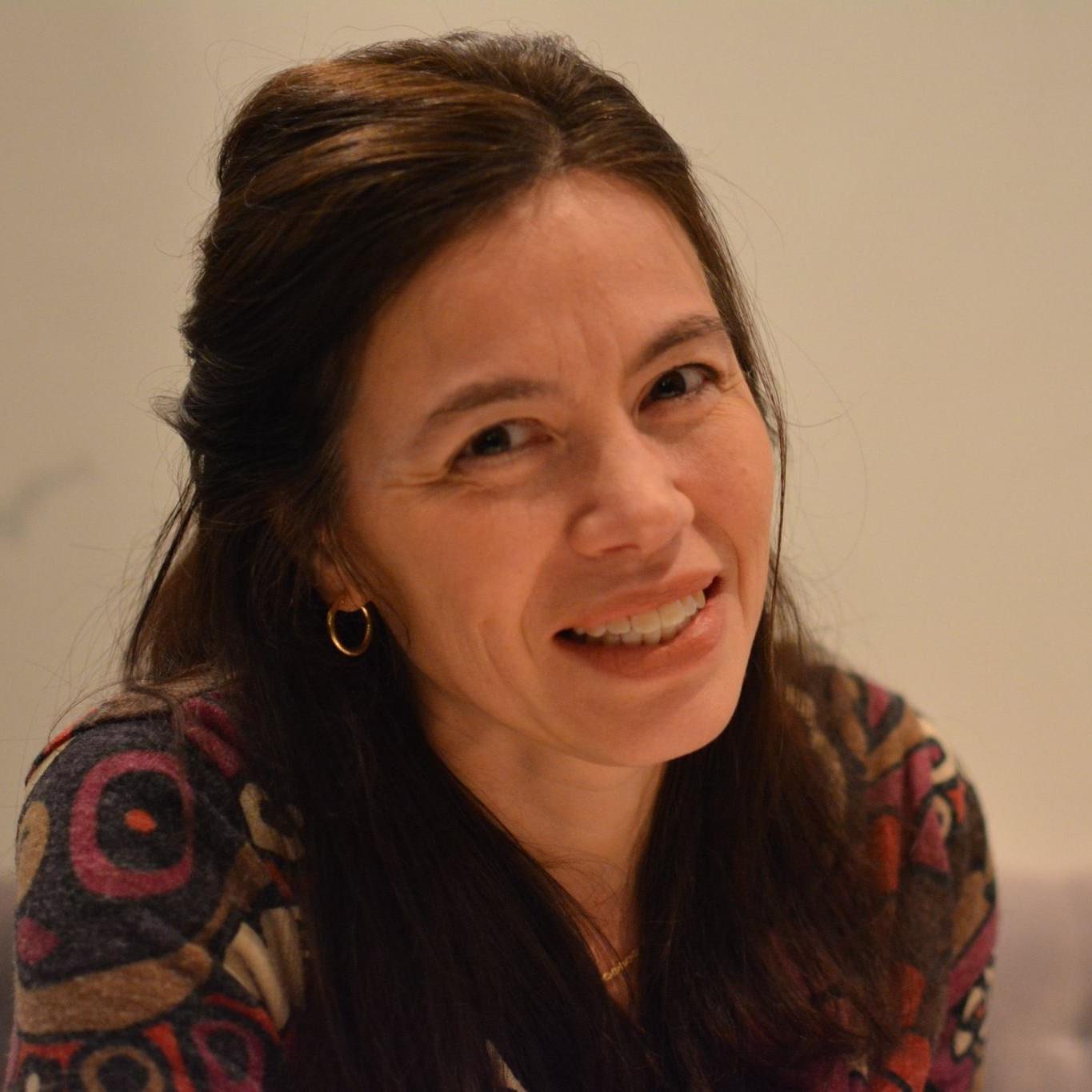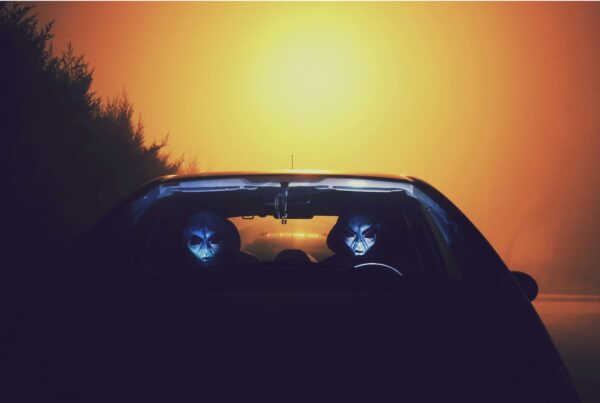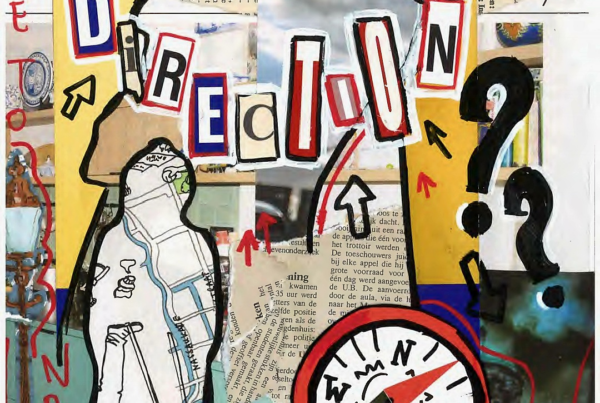
For this issue’s Office Hours, Spiegeloog talked to Brenda Jansen. Brenda has several academic roles at the UvA within the Clinical Developmental Psychology field. She is the coordinator and a lecturer of the Psychological Assessment and Childhood: Developmental Psychology courses (Bachelor), and a lecturer of the Developmental Psychopathology course (Research Masters), as well as a supervisor for the master thesis. She is also currently involved in research on collaborative work amongst children in an online platform, Math Garden.

How are you experiencing online teaching?
‘It’s okay. But of course, I very much prefer offline on-campus teaching. I think it’s been about a year now since the campus was closed. I was just about to teach psychological assessments in April 2020. I really thought that this closure would only be for a few weeks. So, you know, we had to make some fast decisions. We decided to skip the tutorials and I still regret that. I think, even though the tutorials are online, they’re very important. This semester I saw what it was like to have these online tutorials and I think I still got to know everyone quite well, even though it’s not the same as on-campus of course. In general, I think online teaching is okay, but I miss the coffee breaks. I miss the chit-chat. I miss my colleagues. I also think it’s a big struggle for students to stay motivated, but I think they can learn a lot from discussions with their fellow students, which could be arranged online.’
What’s the biggest impact for you, switching from offline to online teaching?
‘Before the lockdown, I was already thinking about the lectures, for example, if lectures should be recorded and available after the lecture hours because I know that many students watch the lectures right before the exam to revise. So, regarding recording the lectures, it was manageable, although it took me a lot of time. But I think the lack of personal connection, that is present in offline lectures and tutorials, is the biggest challenge because I always like to have a more informal atmosphere in the tutorials to get to know the students. To know their interests, their strengths, and their weaknesses, and maybe be a sort of role model for them. With online tutorials that’s much harder. For example, during tutorial breaks, you’re on your own now and on campus, these are the times that you are usually not on your own. You stand in line in front of the coffee machine during the breaks or maybe you’re early for the tutorial and you have some time to chat with your fellow students or with a tutor. This is another aspect of offline teaching that I miss.’
Have you struggled with balancing your work and home life, or has it been manageable?
‘Well, my daughters are 15 and 17 years old, so they’re quite independent. I think it’s much harder for colleagues who have younger children. For me, I do notice that I work more hours than I used to. Normally, my workday has a natural beginning and a natural ending because I always enter around 9.00 am and leave the office at 5.30 pm. Sometimes I would l do some reading on the train. But now, I start when I’m ready, and I finish when dinner’s ready. It’s more dependent on my decisions, something that I choose for. In general, I feel like the balance is okay, but I work more hours than I used to. I’m also working in a spare room which separates me from my family and makes it easier for me to work non-stop. It’s better for work but it’s not that great for being a part of the family.’
Is there something that you’ve learned or gained from this pandemic?
‘I never liked to walk. Now I walk daily on my own, to get some exercise, and weekly with friends because this is the only way to meet people. I also started to do some volunteering work. From the clinical developmental lectures, we have discussed that the pandemic has a large impact on children and possibly an even larger impact on children from lower socio-economic backgrounds. In December, I saw this advertisement by the neighbourhood community centre where they organise fun activities for children. They asked for volunteers to help children with their homework. I thought, since I’m mostly at home, I like to work with children, and I spend too much time on my work, it would be good to volunteer. I help these children weekly with their homework. I think I’m always talking about these issues in the lecture, for example, that socio-economic status moderates the impact of the pandemic. Now I see it in real life. I re-experienced how you can do something meaningful for children as a volunteer and I rediscovered that I really like working with children. Next to that, I also discovered a lot of shows on Netflix of course. I recently watched something very cheesy, Firefly Lane, and I’m still watching Blacklist but I’m not really a binge-watcher. One episode at a time is enough for me. One more show I would recommend is Flaked.’

How are you experiencing online teaching?
‘It’s okay. But of course, I very much prefer offline on-campus teaching. I think it’s been about a year now since the campus was closed. I was just about to teach psychological assessments in April 2020. I really thought that this closure would only be for a few weeks. So, you know, we had to make some fast decisions. We decided to skip the tutorials and I still regret that. I think, even though the tutorials are online, they’re very important. This semester I saw what it was like to have these online tutorials and I think I still got to know everyone quite well, even though it’s not the same as on-campus of course. In general, I think online teaching is okay, but I miss the coffee breaks. I miss the chit-chat. I miss my colleagues. I also think it’s a big struggle for students to stay motivated, but I think they can learn a lot from discussions with their fellow students, which could be arranged online.’
What’s the biggest impact for you, switching from offline to online teaching?
‘Before the lockdown, I was already thinking about the lectures, for example, if lectures should be recorded and available after the lecture hours because I know that many students watch the lectures right before the exam to revise. So, regarding recording the lectures, it was manageable, although it took me a lot of time. But I think the lack of personal connection, that is present in offline lectures and tutorials, is the biggest challenge because I always like to have a more informal atmosphere in the tutorials to get to know the students. To know their interests, their strengths, and their weaknesses, and maybe be a sort of role model for them. With online tutorials that’s much harder. For example, during tutorial breaks, you’re on your own now and on campus, these are the times that you are usually not on your own. You stand in line in front of the coffee machine during the breaks or maybe you’re early for the tutorial and you have some time to chat with your fellow students or with a tutor. This is another aspect of offline teaching that I miss.’
Have you struggled with balancing your work and home life, or has it been manageable?
‘Well, my daughters are 15 and 17 years old, so they’re quite independent. I think it’s much harder for colleagues who have younger children. For me, I do notice that I work more hours than I used to. Normally, my workday has a natural beginning and a natural ending because I always enter around 9.00 am and leave the office at 5.30 pm. Sometimes I would l do some reading on the train. But now, I start when I’m ready, and I finish when dinner’s ready. It’s more dependent on my decisions, something that I choose for. In general, I feel like the balance is okay, but I work more hours than I used to. I’m also working in a spare room which separates me from my family and makes it easier for me to work non-stop. It’s better for work but it’s not that great for being a part of the family.’
Is there something that you’ve learned or gained from this pandemic?
‘I never liked to walk. Now I walk daily on my own, to get some exercise, and weekly with friends because this is the only way to meet people. I also started to do some volunteering work. From the clinical developmental lectures, we have discussed that the pandemic has a large impact on children and possibly an even larger impact on children from lower socio-economic backgrounds. In December, I saw this advertisement by the neighbourhood community centre where they organise fun activities for children. They asked for volunteers to help children with their homework. I thought, since I’m mostly at home, I like to work with children, and I spend too much time on my work, it would be good to volunteer. I help these children weekly with their homework. I think I’m always talking about these issues in the lecture, for example, that socio-economic status moderates the impact of the pandemic. Now I see it in real life. I re-experienced how you can do something meaningful for children as a volunteer and I rediscovered that I really like working with children. Next to that, I also discovered a lot of shows on Netflix of course. I recently watched something very cheesy, Firefly Lane, and I’m still watching Blacklist but I’m not really a binge-watcher. One episode at a time is enough for me. One more show I would recommend is Flaked.’



